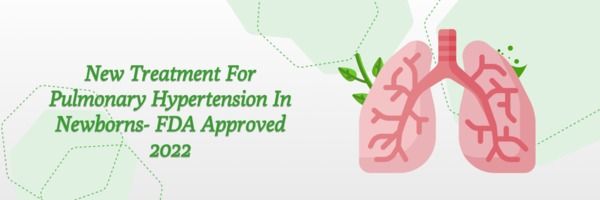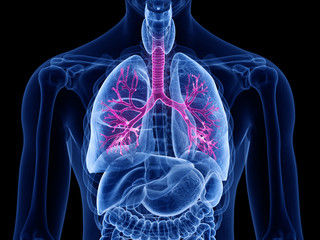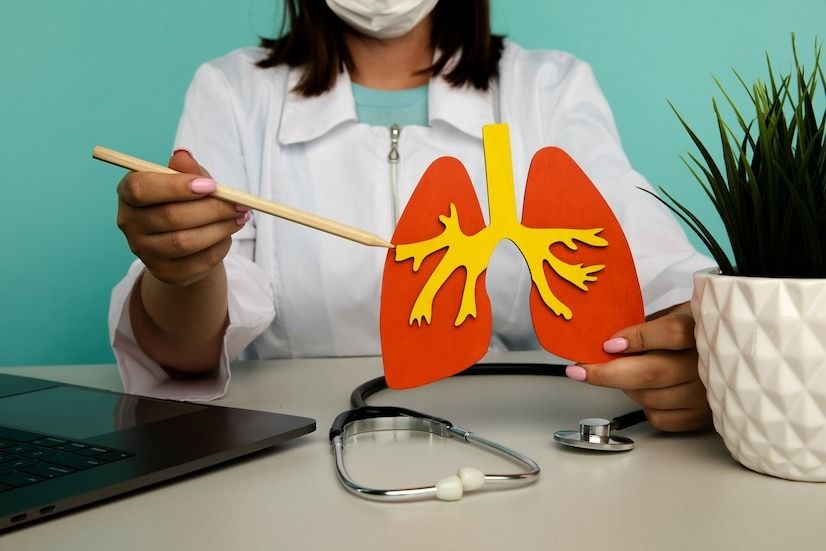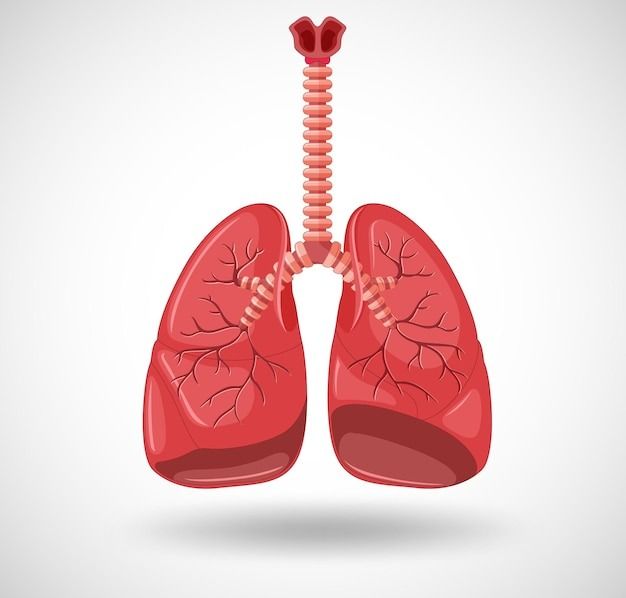Pulmonary fibrosis is a chronic and progressive lung disease characterized by the scarring of lung tissue, which leads to severe breathing difficulties and a decline in lung function. In India, where respiratory diseases are prevalent due to factors like pollution and smoking, pulmonary fibrosis represents a significant health challenge. According to recent data, India has witnessed an increasing incidence of pulmonary fibrosis, with thousands of new cases diagnosed annually. This disease can be idiopathic (IPF) or result from other underlying conditions. Stem cell therapy has emerged as a promising treatment option, offering hope for reversing or slowing down fibrosis progression.
Can Stem Cells Reverse Fibrosis?
Recent studies have shown that stem cells, particularly mesenchymal stem cells (MSCs), can differentiate into lung epithelial cells, crucial for repairing damaged lung tissue. These cells have shown potential in reducing inflammation, modulating the immune response, and even repairing damaged lung tissue.
Research has shown promising results in preclinical studies, where stem cells have led to the regeneration of lung tissue and improvement in lung function. However, the evidence from clinical trials is still evolving. Some studies indicate that stem cell therapy can slow down fibrosis progression and improve quality of life, but reversing fibrosis completely remains challenging.
While stem cell therapy holds promise, it is important to highlight that it is not a guaranteed cure for pulmonary fibrosis. Continuous research and clinical trials are necessary to understand its potential and limitations fully.
Furthermore, new approaches are being tested in clinical trials that combine stem cell therapy with other treatments, targeting the underlying mechanisms of fibrosis to enhance the efficacy of these therapies.
How Stem Cell Therapy Can Help Pulmonary Fibrosis
Stem cells are unique cells with the potential to develop into different cell types in the body. In the case of pulmonary fibrosis, mesenchymal stem cells (MSCs), derived from sources like bone marrow or adipose tissue, are used to target lung inflammation and promote the repair of damaged tissues. Here’s how stem cell therapy could help:
- Regeneration of Damaged Tissue: Stem cells may differentiate into healthy lung cells, replacing scarred tissue and improving lung function.
- Reduction of Inflammation: MSCs have anti-inflammatory properties that may help reduce inflammation in the lungs.
- Slowing Disease Progression: Early studies suggest that stem cell treatment could potentially slow down the worsening of symptoms.
Do FDA Approved Stem Cells for Pulmonary Fibrosis?
The FDA's approval status for stem cell treatment for pulmonary fibrosis is a critical consideration for patients and healthcare providers. Currently, the FDA has not fully approved stem cell treatment for pulmonary fibrosis as a standard treatment. This therapy is still considered experimental, and its use is typically restricted to clinical trials and compassionate use programs.
However, several countries, including India, have more flexible regulations that allow stem cell treatment for pulmonary fibrosis in clinical practice, particularly for conditions with limited treatment options. Patients must consult with their healthcare providers to understand the regulatory status of stem cell treatment for pulmonary fibrosis in their country and the potential risks involved.
What Are the Benefits of Stem Cell Therapy for Pulmonary Fibrosis?
Stem cell therapy offers several potential benefits for patients with pulmonary fibrosis:
- Reduced Inflammation: Stem cells have anti-inflammatory properties that help reduce lung inflammation, a key factor in fibrosis progression.
- Immune System Modulation: Stem cells can modulate the immune response, preventing the excessive immune activity contributing to lung damage.
- Tissue Regeneration: The ability of stem cells to differentiate into lung cells offers the potential for regenerating damaged lung tissue, improving lung function.
- Improved Quality of Life: Patients who undergo stem cell therapy often report improved breathing, reduced symptoms, and a better overall quality of life.
- Potential Disease Modification: While more research is needed, there is hope that stem cell therapy could alter the course of the disease, slowing its progression.
What Are the Risks of Stem Cell Therapy for Pulmonary Fibrosis?
Like any medical treatment, stem cell therapy comes with potential risks:
- Infection: The process of harvesting, processing, and injecting stem cells carries a risk of infection.
- Tumor Formation: There is a theoretical risk that stem cells could differentiate uncontrollably, leading to tumor formation.
- Immune Rejection: Although rare, the body may reject the transplanted stem cells, leading to complications.
- Unproven Efficacy: Since stem cell therapy for pulmonary fibrosis is still experimental, its efficacy is not guaranteed, and results can vary from patient to patient.
- Cost: Stem cell therapy can be expensive, and since it is not FDA-approved, it is often not covered by insurance.
Where Can I Get Stem Cell Therapy for Pulmonary Fibrosis in India?
StemRx Bioscience Solutions Pvt. Ltd., Mumbai
StemRx is at the forefront of stem cell therapy in India, offering cutting-edge treatments for chronic conditions like pulmonary fibrosis. They specialized in using autologous stem cells harvested from the patient's body and reintroduced after processing to promote lung tissue regeneration. StemRx's protocols have been tailored to enhance lung function, reduce symptoms, and improve the quality of life for patients with pulmonary fibrosis.
NeuroGen Brain and Spine Institute, Navi Mumbai
NeuroGen is renowned for its innovative approaches to treating neurological and pulmonary conditions. Their stem cell therapy for pulmonary fibrosis involves a multidisciplinary team of specialists who assess and tailor treatments based on the severity of the disease. NeuroGen also integrates physical rehabilitation and supportive therapies to maximize the benefits of stem cell treatment, aiming to restore lung function and slow the progression of fibrosis.
Stem cell therapy represents a promising avenue for treating pulmonary fibrosis, offering hope to patients with few other options. While it is not yet fully approved by the FDA, it is available in several top hospitals in India, where ongoing research and clinical trials are helping to advance the understanding and application of this innovative treatment.
Patients considering stem cell therapy should consult their healthcare providers to weigh the potential benefits and risks, understand the costs, and explore the most reputable treatment centers. As research continues to evolve, stem cell therapy may become a more established and accessible option for managing pulmonary fibrosis.
Cost of Stem Cell Treatment for Pulmonary Fibrosis
The cost of stem cell therapy varies by country and clinic. In India, prices can range from ₹2,00,000 to ₹5,00,000 per treatment session, depending on the source of stem cells and the number of sessions required. The cost in the U.S. may be significantly higher, often between $10,000 and $30,000 per session.
Stem Cell Treatment for Idiopathic Pulmonary Fibrosis (IPF)
Idiopathic Pulmonary Fibrosis (IPF) is a chronic lung disease that leads to progressive scarring of lung tissue, making it difficult for patients to breathe. Stem cell treatment for pulmonary fibrosis offers a potential new approach for treating IPF by using mesenchymal stem cells (MSCs) that have the ability to reduce inflammation and promote the repair of damaged lung tissue. These MSCs can differentiate into healthy lung cells, potentially slowing down disease progression and improving lung function. While not a cure, stem cell treatment for pulmonary fibrosis provides hope for better symptom management and an enhanced quality of life for IPF patients. However, more clinical research is needed to establish its long-term safety and effectiveness.
The success of stem cell treatment for pulmonary fibrosis
Improved Lung Function: Some studies have shown that patients undergoing stem cell therapy experienced improvements in lung function, with increased oxygen levels and better breathing capacity.
Symptom Relief: Patients often report reduced symptoms, such as coughing and shortness of breath, leading to enhanced daily functioning and comfort.
Anti-Inflammatory Effects: Mesenchymal stem cells (MSCs) used in therapy possess anti-inflammatory properties that help reduce inflammation in the lungs, potentially slowing the progression of fibrosis.
Slower Disease Progression: While stem cell treatment is not a cure, it may help slow down the worsening of symptoms in some patients with pulmonary fibrosis.
Enhanced Quality of Life: Improved breathing and symptom management contribute to a better quality of life for patients, allowing them to engage more in physical activities and social interactions.
Reduced Need for Oxygen Therapy: Some individuals who receive stem cell treatment have reported a reduced reliance on supplemental oxygen, indicating better lung function.
Positive Preliminary Trial Results: Early clinical trials have shown promising results, with several patients experiencing stabilization or slight improvement in lung function.
Potential for Regeneration: Stem cells may support the regeneration of damaged lung tissue, offering a more regenerative approach compared to traditional therapies that only manage symptoms.
Minimal Side Effects Reported: Although stem cell therapy is still experimental, reported side effects tend to be minimal, often including temporary flu-like symptoms or mild injection site reactions.
Expansion of Clinical Trials: The growing number of clinical trials worldwide indicates increased interest and optimism in stem cell therapy for treating pulmonary fibrosis.
FAQs
1. Is stem cell treatment a cure for pulmonary fibrosis?
Currently, stem cell therapy is not a cure for pulmonary fibrosis. It is considered a potential treatment that may help manage symptoms and improve lung function. Research is ongoing to evaluate its long-term efficacy.
2. What types of stem cells are used in the treatment?
Mesenchymal stem cells (MSCs) derived from sources such as bone marrow, adipose tissue, or umbilical cord tissue are commonly used in stem cell therapy for pulmonary fibrosis.
3. How long does the treatment take?
Stem cell therapy sessions typically last a few hours. The full course of treatment may require multiple sessions over several months, depending on the patient's condition and response to therapy.






